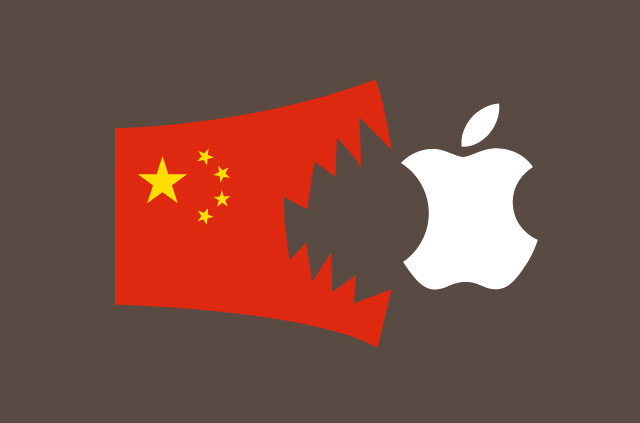After removing some 400 VPNs from the App Store in China, Apple is taking a hit in year-over-year revenue. Could the VPN ban be to blame?
The iPhone 8 may be dropping later this month, but a growing number of Chinese consumers couldn’t care less. At least, that’s what many analysts are speculating. After increasing pressure from the Chinese government, Apple reluctantly decided to pull 400 VPNs from their Chinese App Store last July. Users were justifiably outraged.
Now, Apple is seeing a drop in the Chinese market, with some analysts forecasting a 10% decline in year-over-year profit. While Apple’s stock in Asia has been rocky over the last few years, the most recent numbers are anything but optimistic.
Could their decision to remove VPNs be to blame? Absolutely.
Why Apple decided to remove VPNs
The Great Firewall is many things, but tolerant is not one of them. Tourists visiting China for the first time may be shocked to realize sites like Facebook, Google, and YouTube are among a growing list of restricted sites. That’s why millions of people have turned to VPNs. By connecting to a virtual server location outside of China, users can browse without restriction.
This isn’t the first time the Chinese government has cracked down on VPNs; last year the government systematically shut down various local VPN providers for operating without state approval.
Naturally, it was only a matter of time before the government strong-armed their way into tech companies like Apple. In a statement released shortly after the ban, Apple CEO Tim Cook defended his decision:
“Today there are actually still hundreds of VPN apps on the App Store, including hundreds by developers that are outside China, and so there continues to be VPN apps available. We would obviously rather not remove the apps, but like we do in other countries, we follow the law wherever we do business. And we strongly believe that participating in markets and bringing benefits to customers is in the best interest of the folks there and in other countries as well. And so we believe in engaging with governments even when we disagree.”
How the public (and Snowden) reacted
Users in China (as well as abroad) were surprised to see their VPN services disappear overnight, and privacy advocates like Edward Snowden were quick to speak out.
Apple has done much good for privacy and security in recent years, but actively assisting censorship crosses the red line of human rights. https://t.co/gzhRPqs5g9
— Edward Snowden (@Snowden) July 29, 2017
ExpressVPN, a popular VPN provider in China, was among the first to notify their customers of the sudden change. “We’re disappointed in this development, as it represents the most drastic measure the Chinese government has taken to block the use of VPNs to date, and we are troubled to see Apple aiding China’s censorship efforts,” a statement reads.
A group of 28 Chinese app developers even went so far as to sue Apple for abuse of market power.
How users in China can still download VPN from the App Store
Fortunately, it’s not all that hard to access the App Store within China—you just have to change your regional settings. Simply create a new Apple ID using a different email and use your VPN to connect to a region where the App Store is available. From there, follow the same setup instructions and enjoy unrestricted access.
Of course, in the event you can’t access a VPN, you can also change your App Store location by going through your iTunes account. It’s a little more complicated, but this guide is a good reference.
What happens next for Apple in China?
Apple has kowtowed to China before, and likely will again. By agreeing to block VPNs, Apple has unwillingly set a new precedent for which other tech companies could soon follow. While the drop in stock may make them reflect on whether or not they made the right choice, it’s not enough to make them change course…yet.
Until governments and corporations start taking your privacy seriously, make sure you keep that VPN connected.


Recent Comments